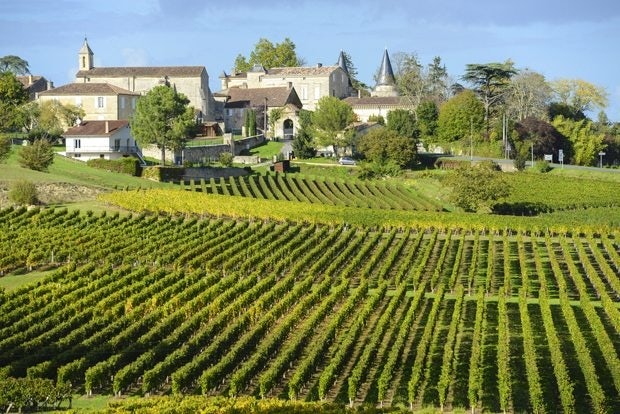
Chinese investors have been particularly eyeing châteaux in the Saint Émilion region of Bordeaux. (Shutterstock)
An increasing number of investors from China are buying vineyards in French regions, and are moving up in their tastes. According to a recent op-ed, Chinese investors first started with buying châteaux in less-popular appellations in the Bordeaux region. But now, they are eyeing bigger region names with prominent châteaux in them.
Wine news site Decanter writes that Chinese investors are offering financially troubled French vineyards a lifeline—they are buying over the estates and providing them with instant access to the Chinese market.
Chinese investment in France’s vineyards goes a long way back. According to CNN, Hong Kong tycoon Peter Kwok made news in 1997 as the first high-profile Chinese purchaser of a French vineyard, when he bought Château Haut-Brisson in the Bordeaux village of Saint-Émilion. It was not until 2008, however, that French vineyards started to see a significant influx of Chinese interest. The South China Morning Post reports that the number of Chinese-owned estates in the Bordeaux jumped from two to 25 between 2009 and 2012. Karin Maxwell, sales director at real estate broker Maxwell-Storrie-Baynes, told wine news site Wine Spectator that China has become Bordeaux’s dominant source of foreign investments, estimating 60 vineyards to be Chinese-owned by the end of 2013. Chinese investors also made waves among French vintners in 2012 when they successfully bought Château de Gevrey-Chambertin, a Burgundy vineyard; making it the first Chinese presence in the prized region.
Now, says Decanter China, Chinese investors are moving up from less expensive appellations to pricier ones in the Bordeaux region, such as Lalande-de-Pomerol and Médoc. One particular appellation, Saint Émilion has become very popular, with new vineyard owners from Hong Kong, mainland China, Singapore, and Taiwan.
One notable Chinese investor in Saint Émilion is An Enda, who owns Jin Sha Winery and Château Kinschab from Inner Mongolia. An bought a controlling stake in Château Trianon in early June. Suzanne Mustacich, a China expert and author of her upcoming book Thirsty Dragon explains that Saint Émilion’s favorable climate is preferable for An’s winemaking operations, compared with the Gobi desert. “The investment also makes sense financially. The premium wine producers in China helped open the market to imported wine,” Mustacich told Decanter. “Of course, they want a part of the action. It’s a prestigious investment – not to mention a safe place for their money.”